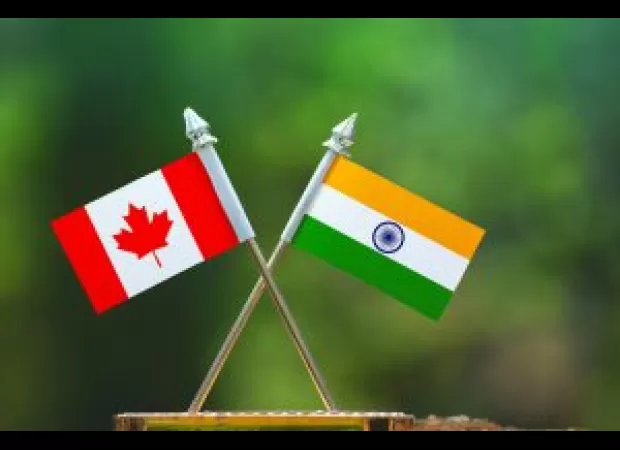Additional stress or pressure experienced by someone or something.
3 Indian nationals arrested for the murder of Khalistani separatist Hardeep Singh Nijjar in British Columbia, worsening ties between India and Canada.

Just when we thought that the relationship between India and Canada couldn't get any worse, news broke of the arrest of three Indian nationals in connection with the murder of Khalistani separatist Hardeep Singh Nijjar in British Columbia. Karan Brar, Kamalpreet Singh, and Karanpreet Singh were charged by the Royal Canadian Mounted Police with first degree murder and conspiracy to commit murder. This development has only added fuel to the already tense situation between the two nations. Canadian Prime Minister Justin Trudeau also weighed in on the matter, stating that every Canadian has the right to live safely and without fear of discrimination or violence.
In response to the arrests, External Affairs Minister S Jaishankar stated that the events surrounding Nijjar's death are primarily a result of Canada's domestic politics and do not involve India. He pointed out that certain individuals supporting the Khalistani movement are manipulating Canada's democratic system and forming a lobby to sway voting results. Jaishankar also highlighted that the ruling party in Canada relies on support from pro-Khalistan figures, causing issues for both countries. India has repeatedly urged Canada not to give visas or political space to such individuals, as it harms the relationship between the two nations.
This recent incident is not the first time that India and Canada have found themselves at odds. In September last year, Trudeau caused a diplomatic row when he alleged the "potential" involvement of Indian agents in Nijjar's murder. This led to both countries expelling senior diplomats in a retaliatory move. Despite India dismissing the accusation as baseless, Canada claimed to have credible intelligence from the "Five Eyes" network, consisting of the US, UK, Canada, Australia, and New Zealand. In fact, just a few months after Trudeau's statement, an Indian national was indicted by the US Justice Department for plotting to murder another Khalistani separatist, Gurpatwant Singh Pannun, on US soil.
Meanwhile, an official investigation in Ottawa has revealed that Indian authorities and representatives based in Canada have been involved in trying to influence the Canadian community and political figures to support India's stance on various issues, particularly regarding Khalistani separatists. The interim report by Commissioner Marie-Josee Hogue stated that India sees anyone aligned with the Khalistani movement as a threat to their country, regardless of whether they are advocating peacefully or engaging in violent extremism. This has been a contentious issue between India and Canada, but the current Indian government's foreign policy approach is only causing more harm than good for the country.
It is evident that India's foreign policy has been struggling for the past two decades. The previous government, UPA, lacked the necessary response and allowed issues to harm India's interests. On the other hand, the current BJP government's attempt to portray a tough and muscular image is only damaging India's reputation in the international community. When a country is accused of committing state-sponsored murder on foreign soil, it speaks volumes about their diplomatic skills, or the lack thereof. Jingoism may bring votes in domestic elections, but it is not a desirable trait in foreign relations, especially when dealing with developed countries. India's foreign policy needs to be reevaluated and improved before it causes any further damage to the country's image and relations with other nations.






